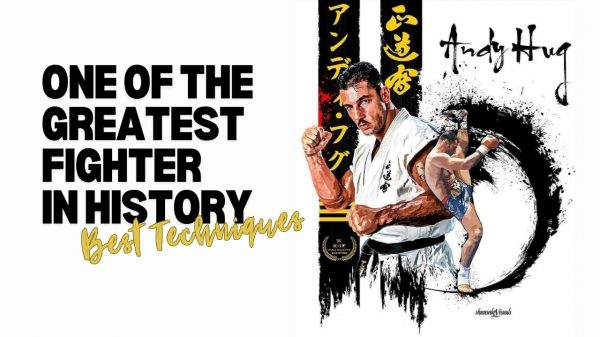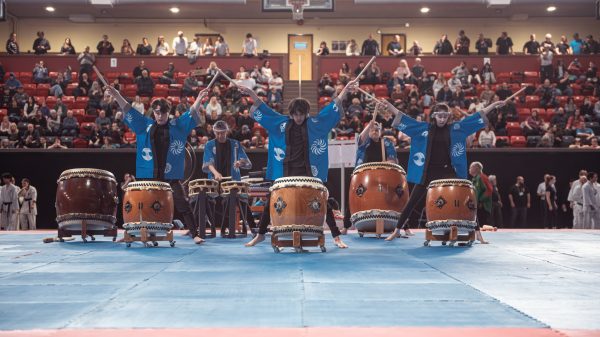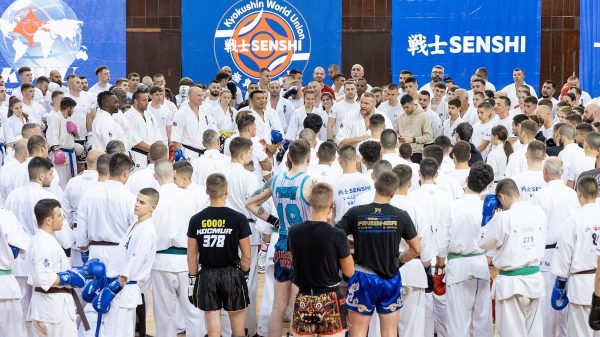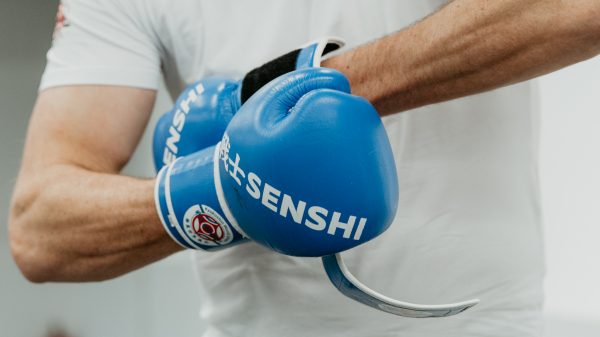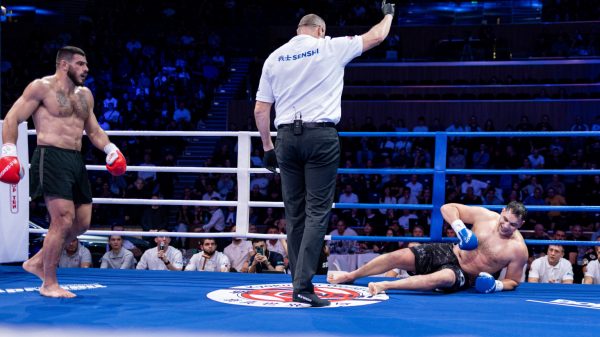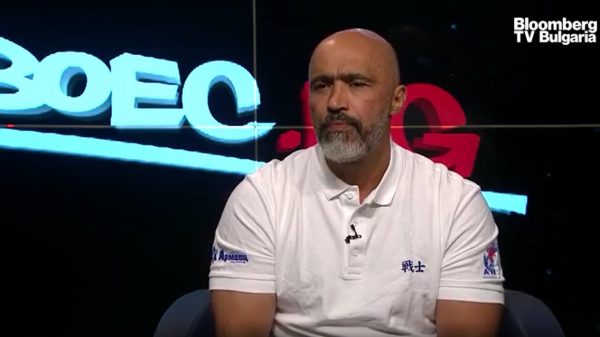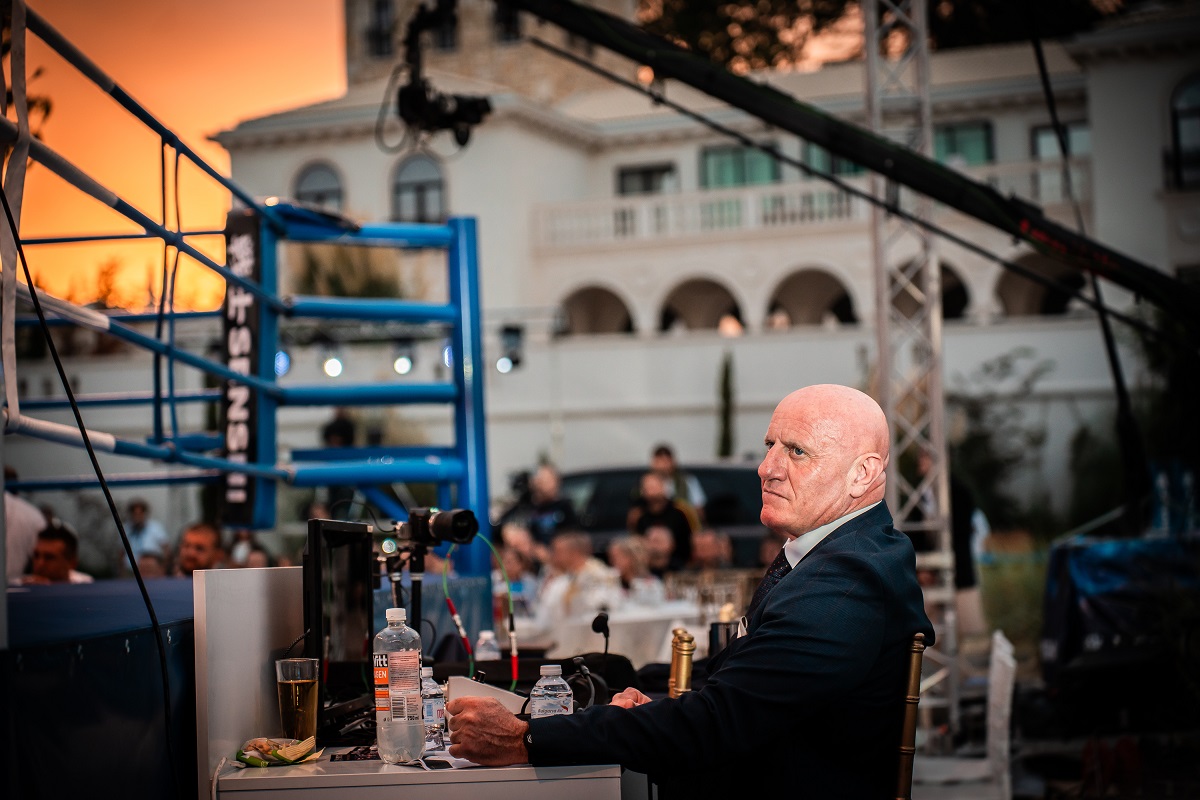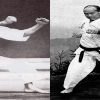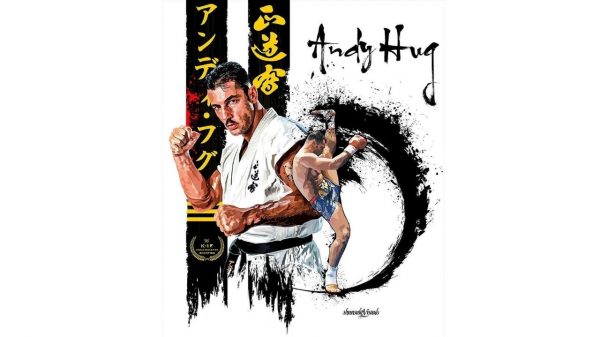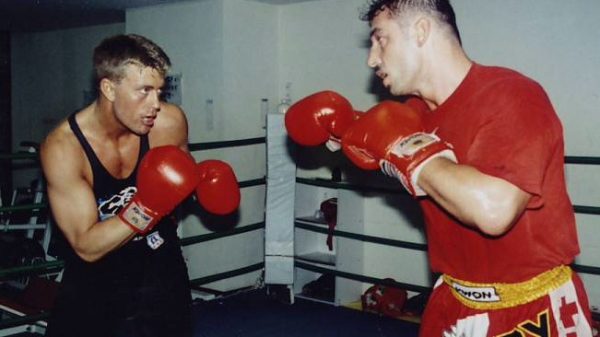By Grant Waterman
So, when did it become cool to be disrespectful? Some of you might say never, but it is clear from social media, YouTube, movies, boxing and MMA press conferences, and even Politics that although we live in a time of ultra-tolerance, acceptance, and political correctness and when you can even be arrested for the words you use, that we see more disrespect now than ever before, and I mean in general because there are areas of society that are still highly disciplined and have respect as a value that cannot be compromised. The Military and Martial Arts are just two examples.
Now, I myself am selective about who and what I respect, and when it comes to individuals, there has to be an amount of admiration for me to be genuinely respectful. Some may question this as I have a rather provocative sense of humor, I’m covered in tattoos, I dislike politics and certain aspects of religious control as well as the way the majority of the UK Police operate. I like listening to thrash Punk Rock and very loud Heavy Metal as well as riding a huge, even louder American motorcycle. Yes, America has done a few things that I don’t dislike!
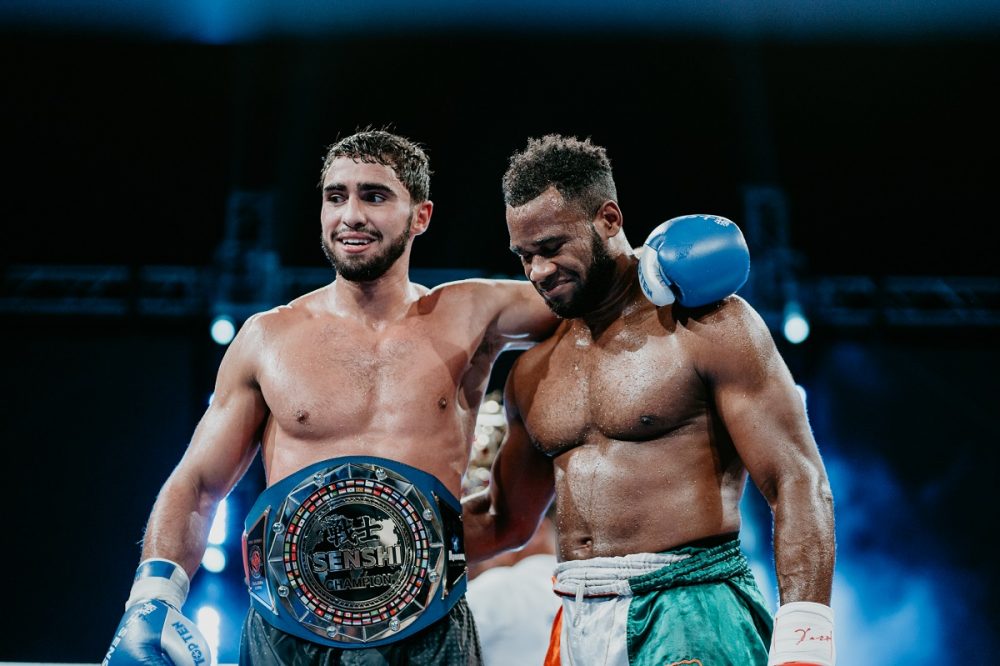
I remember being ringside in Japan for what is considered by many to be one of the greatest MMA fights of all time between Fedor Emelianenko and Mirko CroCop. Leading up to the contest there was no fake trash talking or pushing and shoving like two women arguing at the weigh ins like you see nowadays. Boxing and MMA has become a circus and young fighters have been brainwashed to think they have to act like a clown to get on the payroll. What we saw back then was two warriors who earned respect through their performance and conduct. So let’s bring back respect and sportsmanship and stop this attention over achievement mindset. Remember, a clown who can fight is still a clown. A gentleman who acts like a warrior and can fight is respected and remembered.
In the world of combat sports, respect has traditionally been a cornerstone of competition. From ancient gladiatorial arenas to modern-day mixed martial arts (MMA), fighters have adhered to unwritten codes of honour, valuing discipline, humility, and sportsmanship. However, in recent years, this respect seems to be eroding, with more attention focused on brash personalities, trash-talking, and provocative behaviour. The rise of social media, coupled with the portrayal of fighters in movies, has contributed to a culture where attention is valued more than achievement.
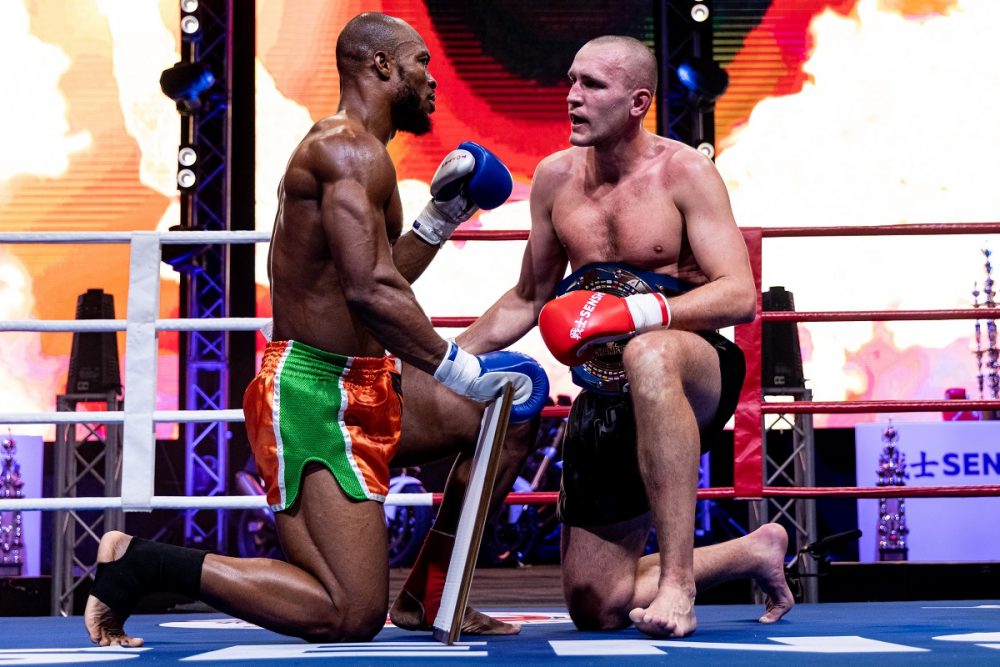
While entertainment is important, this trend of glamourizing disrespect risks distorting the essence of Martial Arts and how they are perceived by the younger generation. Competitive fighting has always had an element of spectacle, but historically, the focus was on the skill, strategy, and bravery of the athletes. Fighters were admired not just for their physical prowess but for their self-discipline, respect for opponents, and dedication to their craft. Today, that narrative has shifted. Increasingly, it seems that disrespect is being rewarded, not only within the sports themselves but in the broader culture influenced by social media and film. Movies often portray combat sports figures as anti-heroes or characters who defy authority, dismiss their opponents, and relish in their own ego. These fictionalized accounts can influence real-world behaviour, as young fans begin to see this as the key to success. Social media has further amplified this issue. Platforms like Instagram, Twitter, and TikTok reward provocative content that garners the most views and likes.
Fighters who engage in trash-talking, taunting, and sometimes outright bullying often see a surge in followers and media attention. As a result, this disrespectful behaviour becomes glamorized, creating the impression that the path to fame in combat sports is through controversy rather than genuine achievement. Attention over achievement is the underlying issue and the growing tendency to prioritize attention over achievement. In combat sports, where performance in the ring or cage should be the ultimate measure of success, the focus is often diverted to fighters’ social media antics or the insults they hurl at their opponents during pre-fight press conferences.

In the past, athletes like Muhammad Ali, though a master of the psychological game, were equally celebrated for their dedication and accomplishments. Now, fighters are often more famous for their online personas than their skills. This shift has real-world consequences. Young athletes, seeing how attention-grabbing behaviour leads to opportunities, endorsements, and fame, may begin to believe that this is the path to success. This mindset undermines the importance of hard work, perseverance, and respect for the sport and its participants. In the long run, combat sports risk losing the very qualities that made them so respected: the idea that no matter how fierce the competition, respect for one’s opponent and the sport is paramount.
The Role of Social Media
Social media has become a powerful tool for fighters to market themselves, but it has also contributed to the erosion of sportsmanship. Fighters are now expected to sell their fights not just through their performance, but through their personality, leading to increasingly outrageous behaviour designed to grab attention. The UFC, for example, has seen a rise in fighters who gain more media traction through their Twitter feuds or brash interviews than through their fight records.
Trash-talking, once a strategic part of mental warfare, has become an end in itself. Fighters like Conor McGregor have mastered the art of the soundbite, turning press conferences into spectacles that rival the fights themselves. While this approach certainly brings eyes to the sport, it also sets a dangerous precedent: success is determined not by what happens in the cage but by what happens outside of it. As these tactics prove effective in generating views and revenue, they become more pervasive, encouraging young fighters to emulate them.
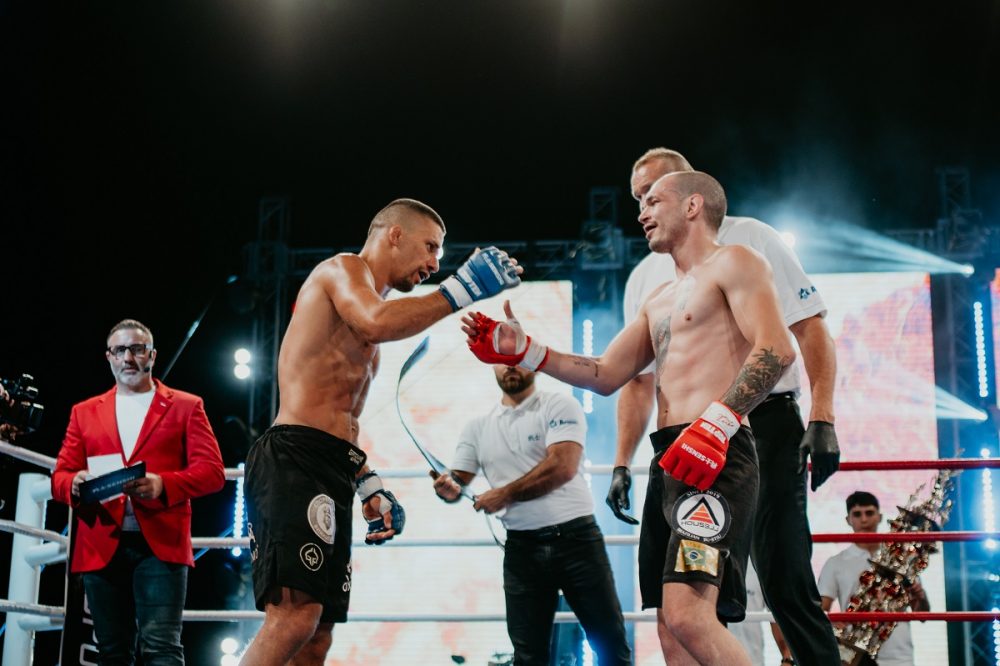
The Importance of Sportsmanship and Respect
As combat sports continue to evolve, it is crucial to remember that they have always been about more than just physical contests—they are a test of character. Martial arts, boxing, wrestling, and other forms of combat are deeply rooted in traditions of discipline, respect, and honour. These values not only elevate the sport but serve as a model for society. When athletes demonstrate respect for their opponents, it sends a powerful message to fans and aspiring fighters alike: success is not just about winning but about how you conduct yourself in the process. For the next generation of athletes, having role models who embody these values is essential. They need to see that it is possible to achieve greatness without resorting to disrespect or antics. Figures like Georges St-Pierre, who maintained a career marked by humility, discipline, and sportsmanship, show that it is possible to be both successful and respectful. His legacy serves as a reminder that combat sports, at their core, are about personal growth and mastery, not just entertainment.
Reclaiming honour to guide the youth of today to look up to combat sports figures not only for their athletic abilities but for how they handle themselves under pressure.
The behaviours they observe will inevitably shape their own understanding of success and respect. This is why it is so important to bring back sportsmanship and honour to combat sports. Respect should not be a forgotten value but the standard to which all fighters are held. By promoting positive role models, the sport can inspire young people to strive for excellence, not just in their physical abilities but in their character. Honour, respect, and humility must be celebrated alongside victory. By doing so, combat sports can guide the youth toward a mindset that values discipline, self-respect, and respect for others. Qualities that are not only important in the ring but in life.
Conclusion
The decline of respect in combat sports, driven by the glamourization of disrespect through movies and social media, is a worrying trend. Attention-seeking behaviour has come to overshadow true achievement, promoting a culture where controversy is rewarded more than dedication and skill. To ensure the future of combat sports remains rooted in honour, it is essential to promote positive role models who embody respect and sportsmanship. Only by doing so can we guide the next generation of fighters to understand that true success comes from mastering both the physical and mental aspects of the sport and that respect for opponents is what truly sets a champion apart. Combat sports, when grounded in honour, have the potential to not only produce great athletes but to shape a more respectful and honourable society.
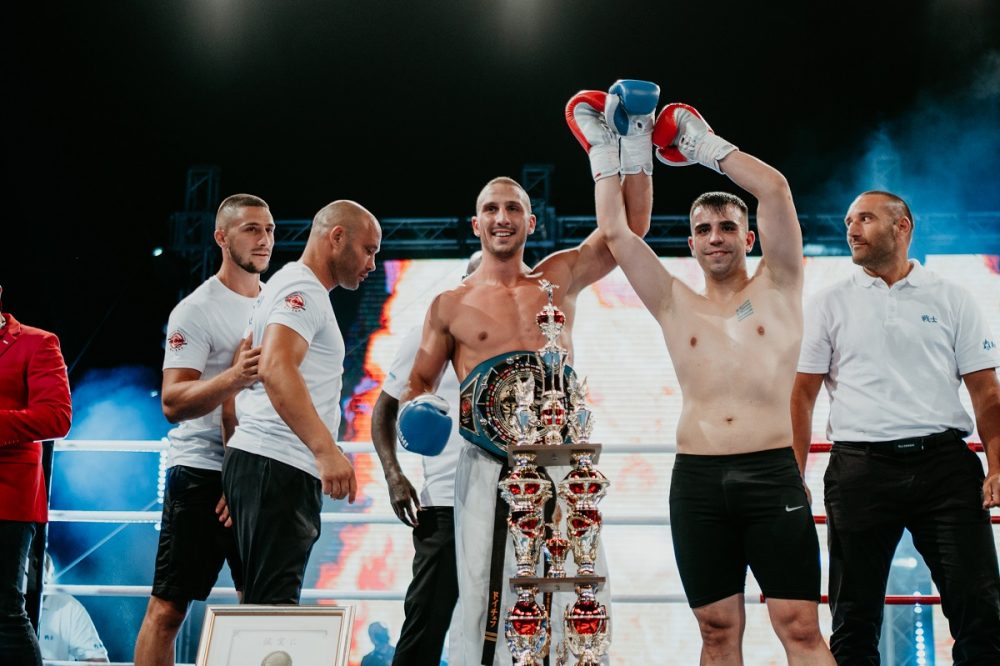
If you ever get the opportunity to attend a SENSHI event or watch it on TV or online, you will see that respect and the warrior spirit is well and truly alive and being upheld by everyone involved. Lets keep fighting to maintain these values and not allow the true traditions of combat to be watered down any further.
I’ll leave you with a quote from the great Kyokushin master Mas Oyama. He practiced Karate, but this applies to all real combat systems.
‘Karate is not a game. It is not a sport. It is not even a system of self-defence. Karate is half physical exercise and half spiritual. The Karate practitioner who has given the necessary years of training and meditation is a tranquil person. He is unafraid. He can even be calm in a burning building’.
This is the person I strive to be. OOOOOOOSSSSSU!


